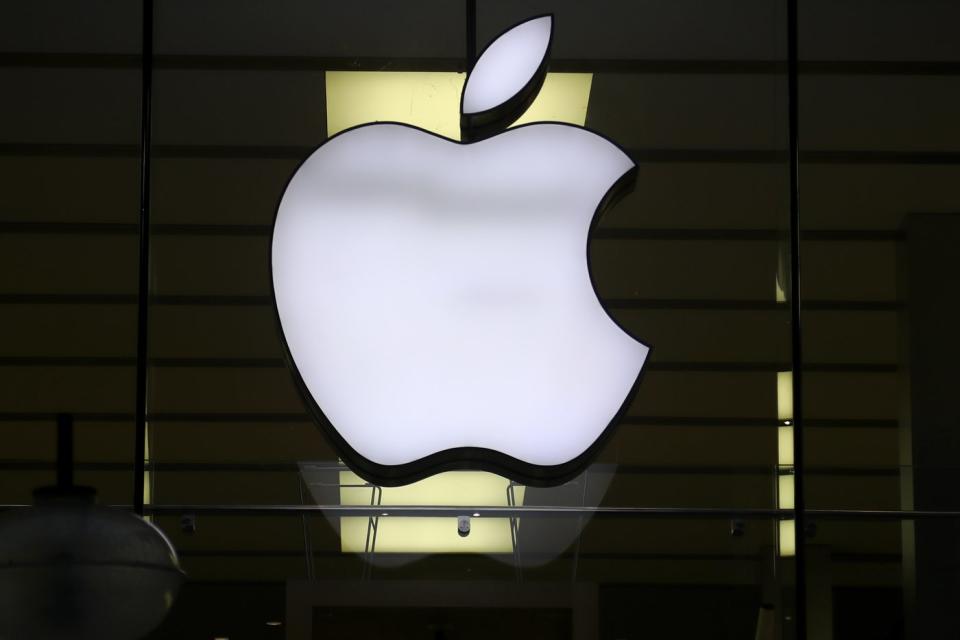Apple becomes first target of EU's new digital competition rules aimed at big tech

LONDON (AP) — European Union regulators on Monday leveled their first charges under the bloc’s new digital competition rulebook, accusing Apple of preventing app makers from pointing users to cheaper options outside its App Store.
The European Commission said that according to the preliminary findings of its investigation, the restrictions that the iPhone maker imposes on developers using its mobile App Store had breached the 27-nation bloc's Digital Markets Act.
The rulebook, also known as the DMA, is a sweeping set of regulations aimed at preventing tech “gatekeepers” from cornering digital markets under threat of heavy financial penalties. The commission opened an initial round of investigations after it took effect in March, including a separate ongoing probe into whether Apple is doing enough to allow iPhone users to easily change web browsers, and other cases involving Google and Meta.
Apple has been facing pressure on both sides of the Atlantic to tear down some of the competitive barriers around its lucrative iPhone franchise.
The U.S. Justice Department filed a sweeping antitrust lawsuit against Apple this year, accusing it of illegally monopolizing the smartphone market and boxing out competitors, stifling innovation and keeping prices artificially high. By the time that case was filed, Apple had already started to comply with a U.S. court order enabling links to alternative payment systems within iPhone apps, but a judge has expressed frustration with the company's approach and has indicated may changes may be required.
App makers such as Spotify had complained for years about Apple’s requirement that subscriptions only be bought through iOS apps, allowing the company to take a commission of up to 30%. Those grievances culminated in European regulators slapping Apple with a $2 billion fine for unfairly favoring its music streaming service over Spotify and other rivals.
Under the DMA's provisions, app developers must be allowed to inform customers of cheaper purchasing options and direct them to those offers.
The commission, the bloc's executive arm, said App Store rules “prevent app developers from freely steering consumers to alternative channels for offers and content.”
Apple now has a chance to respond to the findings. The commission must make a final decision on Apple’s compliance by March 2025. The company could face fines worth up to 10% of its global revenue, which could amount to billions of euros, or daily penalties.
The regulatory tensions prompted Apple to recently raise the specter of excluding the European market from a package of new artificial intelligence features coming to iPhones because the company believes the new rules within the region are too onerous.
But the European commission is keeping the pressure on Apple, simultaneously opening a new investigation into contractual terms that it's offering app developers.
Regulators zeroed in on a “core technology fee” of 50 euro cents (54 cents) that Apple is now charging developers for each time their apps are downloaded and installed from outside Apple's App Store. The DMA's provisions open the way for alternative app stores to give consumers more choice.
The commission said the the new terms are a “condition to access some of the new features enabled by the DMA.” Rivals had criticized the fee, saying it would deter many existing free apps, which don't pay any fees, from jumping ship.
“We are concerned Apple’s new business model makes it too hard for app developers to operate as alternative marketplaces & reach their end users on iOS,” the European Commissioner for Competition, Margrethe Vestager, said on social media.
Apple Inc. said over the past several months, it “has made a number of changes to comply with the DMA in response to feedback from developers and the European Commission.”
“We are confident our plan complies with the law, and estimate more than 99% of developers would pay the same or less in fees to Apple under the new business terms we created,” the company said in a statement. “All developers doing business in the EU on the App Store have the opportunity to utilize the capabilities that we have introduced, including the ability to direct app users to the web to complete purchases at a very competitive rate.”
The company said it will “continue to listen and engage” with the commission.
The EU had been carrying out a similar investigation since 2020 into whether Apple's in-app purchasing system and restrictions violated Brussels' antitrust rules. But “to avoid multiple investigations into the very same conduct,” that probe is being shut down to focus on the investigation under the DMA, which clearly spells out what Apple can't do, the commission said Monday.
Kelvin Chan, The Associated Press

 Yahoo Finance
Yahoo Finance 